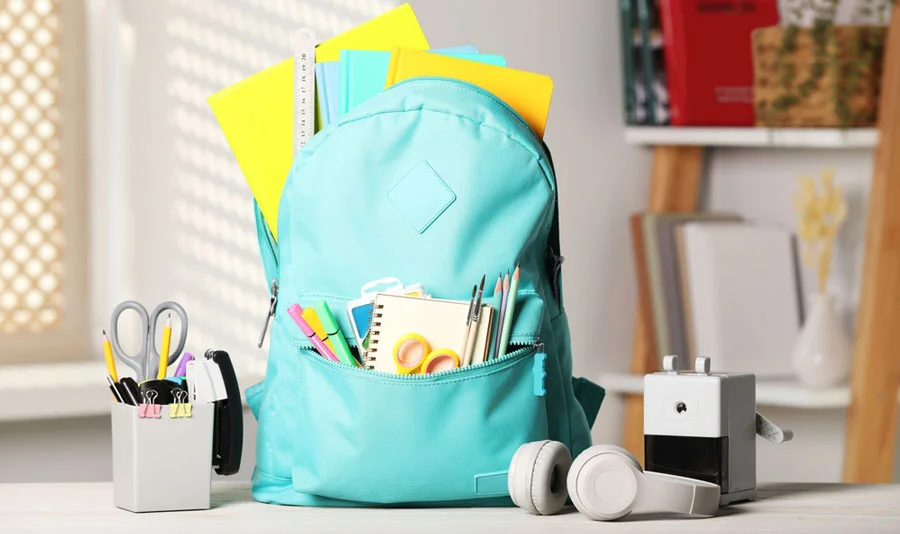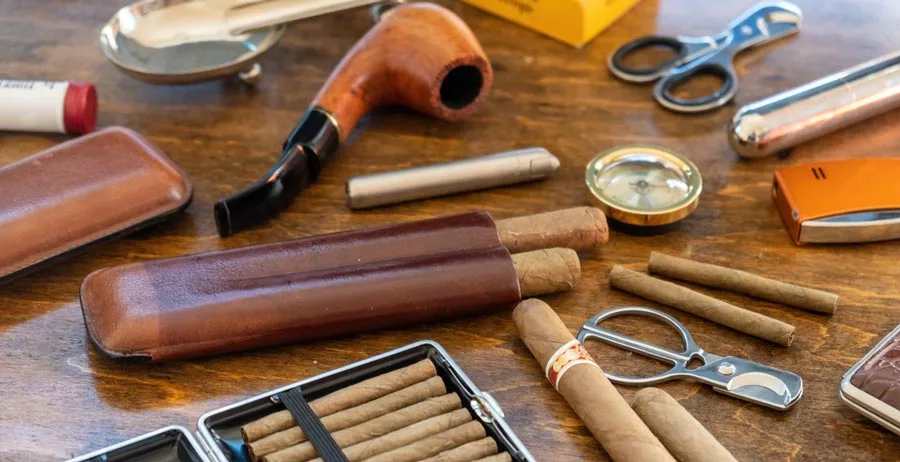Allowed and Prohibited Items at Treatment Center
One of the biggest stresses regarding addiction treatment is figuring out what to bring to rehab and what not to bring. When you’re placed in a strange environment away from anyone you know, there’s already anxiety involved.
Bringing things to a treatment center that make you more comfortable or feel familiar may help ease these anxieties, but what can you actually bring to rehab?
While the rules and regulations at each rehab facility may vary, there are some things that can make your stay more pleasant and others that are better left at home. If you’ve been contemplating attending a treatment center, you might want to read this article. Resurgence Tennessee provides this comprehensive list compiled from our rulebook of what to bring and what not to bring to a rehab facility.
How to Find out What to Bring to a Rehab Facility

If you have questions regarding what to bring to a rehab facility, your first step should be to ask the staff there. In most cases, clients can expect to receive some sort of informational package or brochure from their chosen treatment center outlining the dos and don’ts of the facility. Please call the treatment center if you have any further questions after reviewing this material. They’ll tell you what to bring to rehab and what to leave at home.
Typically, inpatient treatment centers have stringent dress codes. Because of potential storage constraints, you should avoid bringing along unnecessary items. Having seven days’ worth of clothes/outfits should be plenty, as it is probable that you will have access to laundry facilities during your visit to substance abuse treatment. The gear you bring to rehab needs to include choices for layering in case of cooler weather.
Your suitcase for drug and alcohol addiction treatment should include weather-appropriate, soft, and simple-to-clean garments. Don’t bring to rehab any clothes that need to be dry-cleaned or otherwise treated with extra attention. The most crucial point to keep in mind is that you do not need to “dress to impress” at recovery. Remember, you’re there to overcome drug or alcohol abuse. Instead, you should focus on being as comfortable as possible to speed up the healing process. That’s what’s important at most rehab facilities.
As such, here are some suggestions for garments to bring to rehab facilities:
Footwear
Shoes
During your stay, you will require more than one pair of shoes. Slippers will make your pre-bedtime and a.m. routines more relaxing and enjoyable. You need a casual, comfy pair of shoes for everyday use. You should also bring sneakers in case there may be any outdoor pursuits.
Flip Flops
As a final note, if you plan on using a common shower, remember to bring flip-flops.
Tops
Shirts
Shirts are also required, but it’s important to check the guidelines at your addiction treatment clinic to see what styles are acceptable.
Tank Tops
For example, tank tops are often tolerated, but only when covered by something like a shawl, cardigan, or sleeve shirt. Just like you need a pair of shoes for every occasion, you should stock up on a variety of different tops, including those suitable for everyday wear, exercise, and special events.
Bottoms
Pants
Long pants are fine in nearly any type of weather – jeans are the most suitable.
Short or Skirts
Shorts and skirts (if the weather permits) are all wonderful options to bring along. Be mindful of the length of your skirt. Whatever bottoms you decide to bring with you, be sure you’re comfy in them.
Additional Clothing Items for a Rehab Center

- It’s a good idea to bring a swimsuit if the location you’ll be visiting has a pool. Women are usually permitted to wear one-piece swimsuits, while men should wear trunks.
- You should also bring a robe, cozy pajamas, a jacket, a cap, some socks, and, of course, your underwear. It’s vital not to bring any apparel that reflects or implies drug misuse because it may be a trigger that might hamper your recovery, as well as the recovery of others.
Toiletries
It’s possible that certain facilities will supply visitors with the essentials of personal hygiene. However, as a general rule, you should pack enough toiletries to last you for one month. You should know about the rules of toiletries before you pack. Some places require see-through bottles or have other rules. You must adhere to these, or you’ll have to throw away your items before coming in.
Alcohol-Free
Most, if not all, alcohol treatment facilities will insist that you bring in alcohol-free toiletries. There goes the idea of wearing perfume, as many of them contain alcohol. This is also true of antiseptic mouthwash. Alcohol-containing toiletries may be permitted at some facilities, provided that alcohol is not among the first three ingredients.
Aerosol Sprays and Razors
The use of razors and aerosols like hairspray and deodorant varies from facility to facility. Some facilities allow personal grooming items such as razors and nail clippers, but only on the condition that they are checked out for use and returned immediately after use. Before packing or purchasing these things, it is a good idea to verify your information sheet or packet for any restrictions or call your point of contact at the rehab centers.
24 Hour Addiction Rehab Hotline
888-290-5254
The Perfect Rehab Grooming Kit
This is an excellent example of what to pack in a grooming bag or shaving pouch:
- A travel comb or brush
- Shave cream
- Hairspray or gel (only in pump bottles)
- Sticks of deodorant
- Toothbrush and toothpaste
- Soap and body wash
- Sunscreen
Recreational Items

Although you’ll remain fairly busy with recovery-related activities, you should still plan to bring along some items that will help you unwind after a long day. Again, before you buy or bring anything to your drug rehab, you should double-check with them to see whether any of these items are allowed.
Crafty and Hobby Items
Crafts like knitting and crocheting may be relaxing and satisfying pursuits. A camera is also useful to have on hand, as you may be able to go on nature walks while at the center and want to document the beautiful surroundings. If you’re interested in drawing, a sketchbook and some pencils can help you get in the mood.
Inpatient rehabilitation clients who enjoy curling up with a good book might bring a Kindle tablet, which is also convenient because you can bring multiple titles. It’s important to confirm which electrical devices are permitted before you pack them.
Pen and Paper for a Journal
Having a place to write down your thoughts and feelings might be helpful throughout your time in rehabilitation, so consider packing a notebook or journal. Communicating your innermost sentiments on paper may be therapeutic.
Music and Relaxation
It depends on the establishment, but you might be able to bring your own music players, like an MP3 or CD player. Depending on the topic, you may also be able to load some audiobooks. If the rehabilitation facility allows it, you may also use upbeat music or podcasts to keep you motivated. You may not be allowed to bring some things into your recovery space since they could be a distraction.
What About Bringing Tobacco to Rehab Centers?
Once you’ve been screened, certain places may let you bring in tobacco items. For a more comfortable and familiar stay, you may also bring your own pillow and bedding if there is space. It’s possible that devices like laptops and cell phones will be allowed, but only at specific times. If there’s a chance that whatever you’ll be bringing could bring back negative emotions or thoughts about your work or life, it’s best to leave it at home.
What Else Is Necessary to Bring?
Your identification is a requirement, so don’t forget to bring it. Your passport, driver’s license, and insurance cards all fall under this category. You should also make sure you have the details of any loved ones you’d like to have a hand in your healing process. If you need to carry prescription medications with you to treatment, make sure you find out the facility’s policy ahead of time.
It’s also a good idea to bring some cash, as there will probably be vending machines or a small store selling snacks and other products at the alcohol rehabilitation clinic. If you want to keep in touch with loved ones back home while you’re away, it could be a good idea to pack some stationery and stamps. Put on your headphones so you may listen to your music or podcasts without disturbing anyone else. Some people like to bring photos of friends or family.
Your mindset is the single most crucial component of what you bring with you to recovery. If you make an effort to maintain an optimistic outlook and an open mind, your chances of success are likely much better.
What to Leave at Home or Be Mindful About

Furthermore, there are some things that should be left at home or are not permitted in rehabilitation. To be absolutely sure, you should double-check with the facility in question.
- Cigarettes, cigars, pipes, chewing tobacco, e-cigarettes, and other nicotine delivery systems. While smoking and the use of tobacco products may be prohibited within the building, doing so may be tolerated in the outdoor areas.
- Even if marijuana is legal in the state where the institution is located, it is usually not permitted. The use of illegal drugs is strictly forbidden.
- Some clients may have sensitivities to perfumes and aftershaves.
- Weapons.
- Mouthwash with alcohol in it, as it may be enticing to someone with an alcohol dependency.
- Pornography.
- Gambling items
- Your pets, regardless of whether they are service animals or not. Most treatment centers have a strict no-pets policy (there are exceptions)
Do not hesitate to get in touch with the rehab center to confirm whether or not you need to bring a specific item.
24 Hour Drug Addiction Rehab
888-290-5254
Feel Comfortable and Safe in Our Rehab Setting
If you’d like to find out more about what t0 bring and what not to bring to Resurgence Tennessee, contact a member of our Admissions team today. They can provide you with a full list of our guidelines as well as letting you know how to schedule your stay and any updates on how to pack for activities and your recovery journey with us!





